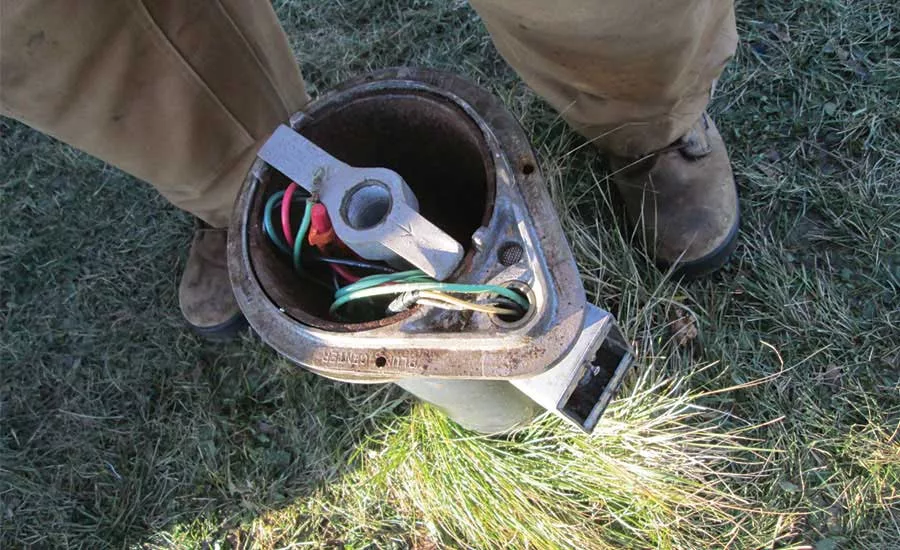Tips for Assessing Groundwater Wells

When inspecting a well, the owner can often provide a wealth of information that might not show up in the well logs.
Source: John Schmitt
Rural Community Assistance Corporation (RCAC) launched the Individual Well Program in April 2016 to provide well assessments and workshops funded by the U.S. Environmental Protection Agency. The program’s mission is to ensure well owners know how to maintain their well and to ensure they have safe drinking water. RCAC staff conduct workshops to educate homeowners, well drillers, environmental health specialists, and other stakeholders on the best practices for well assessments and public outreach. The program is based on research conducted by one of RCAC’s partners, the National Ground Water Association (NGWA). The Rural Community Assistance Corporation offers training, technical and financial resources, and advocacy so rural communities can achieve their goals and visions. The Individual Well Program is part of a national effort to provide consistent and nationwide best practices to assist private well owners and promote public health. After performing more than 200 well assessments, RCAC staff have developed and refined the best practices for well assessment.
Before conducting a well assessment, the well inspector should do some research. He or she should know the relevant structural geology, water quality issues and community issues in the area, as well as be knowledgeable about well system components, well system problem indicators and common troubleshooting problems related to the well system. It is also helpful to know the state (and county) well construction regulations.
The well inspector should ask the well owner to prepare all well documents before the site visit.
“If they’ve told me on the phone that they don’t have a well log, I start the process of requesting one from the county and the state,” says Julie Connel, an RCAC rural development specialist based in Atwater, Calif. “I check the well construction regulations for that county, as they vary in California. I pre-fill as much of the well assessment form as I can.”
The well inspector should bring all needed equipment to perform the well assessment.
“I bring nitrate testing strips, a camera, the assessment form and a tape measure to each site,” Connel says. “I usually bring a well owner’s handbook put out by the State of California.”
She also researches the natural environment.
“I look up the address to get a feel for the surrounding area, including potential nearby hazards and other wells, and to see if it’s in a flood zone,” Connel says. “That will help tell me if it’s in a sandy aquifer or a fractured rock type of formation, too.”
It’s important to remember that simply having a conversation with the well owner can provide essential information. The well owner may not realize he or she has input that could make the assessment more effective.
“The most crucial information a well owner can give me is all the well’s anecdotal history that won’t show up on a well log,” says Jerry Tinoco, an RCAC rural development specialist based in Arvin, Calif. “Any maintenance records or water quality results are really important information that can’t be accessed anywhere else but from the well owners themselves.”
Connel agrees.
“I ask them to find all of their paperwork on the well, including construction logs, sample results and maintenance receipts, as I can use these to assess the well and I can help them interpret things they have questions about.”
The well assessment should not be considered simply an inspection, but rather a valuable opportunity to educate well owners and motivate them to take action. There may be possible barriers that would prevent them from taking action, such as a lack of knowledge or financial issues. If the well inspector can learn to break through those barriers, it may provide an opportunity to motivate the well owner to correct any well problems. The inspector should evaluate for well vulnerabilities, contamination sources, water quality, well construction, and any information that may prove valuable to assess the well’s integrity or vulnerabilities.
After the well assessment, outline the next steps and what the owner should expect, such as when he or she will receive a well assessment report.
RCAC staff highly recommends that inspectors complete the well assessment report immediately upon returning to the office or right after the well assessment, if possible, because the information will be fresh. The inspector should create a site map containing possible contamination issues and review site photos and well documents. After the review, make any necessary recommendations. It is important to be consistent with recommendations among an organization’s staff and partners to avoid confusing well owners with contradictory information.
RCAC will be hosting a free well owner workshop on Saturday, Nov. 18, in Atwater, Calif.
Looking for a reprint of this article?
From high-res PDFs to custom plaques, order your copy today!




